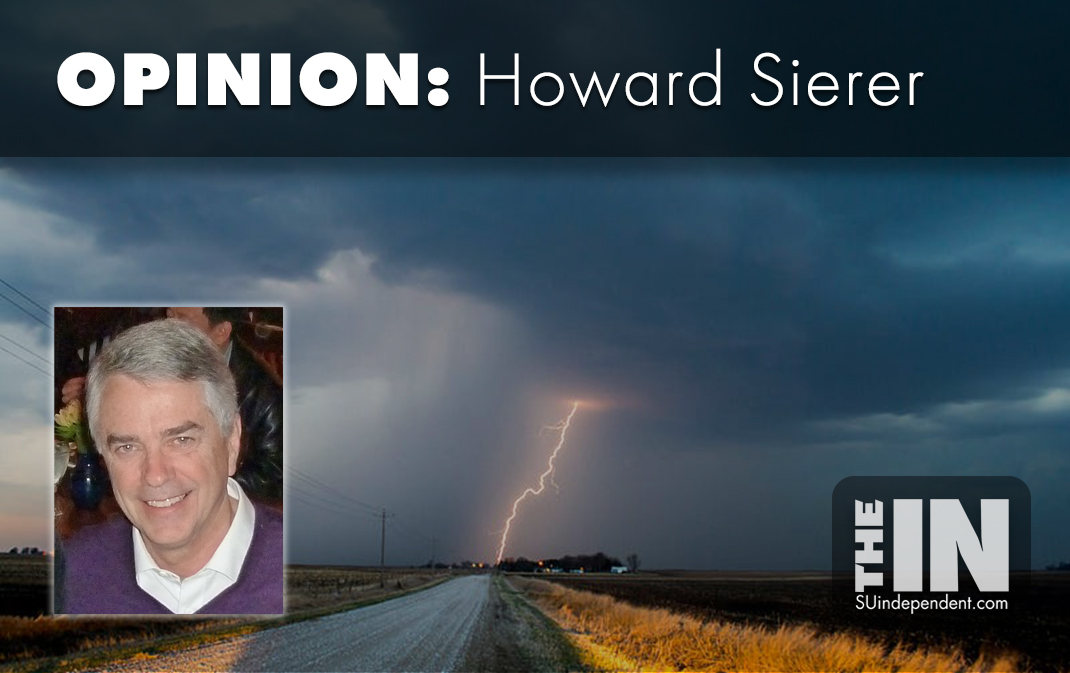
Greenlash And The Issue-Attention Cycle
– By Howard Sierer –
All of us are “environmentalists” to some degree. None of us want to breathe polluted air, and we expect clean, potable water when we turn on the faucet. Controversy arises when environmental activists propose actions that are extreme in the eyes of a majority of Americans. Example: opposition to increasing water storage in drought-plagued California while watching last year’s extensive rains flow downriver into the ocean.
As a result of costly and unpopular environmental proposals and regulations, so-called greens are losing public support worldwide. So-called “green” political parties in Europe, once on the rise, lost 18 of their 72 seats in the European Union parliament elections this year. Environmental activists in this country may dismiss this as “over there,” but they do so at their own risk.
Most Americans do not care that much about climate change as an issue relative to other issues like their cost-of-living. For example, we don’t want to be forced, directly or indirectly, to get an electric vehicle when we’re perfectly happy with our internal combustion cars. We do care about cheap energy prices, not the sources of that energy.
A recent poll by Impact Research conducted for public policy think-tank Third Way vividly demonstrates these realities. Just 4% of Americans attach enough priority to climate change issues to be described as “climate-first” voters. They are relegated to virtual insignificance by the many “economy-first” Americans whose top priorities are lowering costs and reducing inflation.
According to the Third Way report, the 4% of climate-first Americans tend to hold a college degree or higher. They are far more likely than economy-first voters to be financially comfortable and they believe the economy is in good shape by margins of 35% and 47% respectively. It’s clear: if you’re prioritizing climate change, you’re financially secure. For everyone else, it remains a fringe issue, and cost-of-living concerns take center stage.
Nathalie Tocci, an Italian political scientist and international relations expert, popularized the term greenlash, backlash against the environmental movement and green politics. Greenlash is rising across an increasing swath of the American public. They support many environmental goals in theory but recoil when what they see as extreme measures are proposed to implement them.
For example, sentiment about electric vehicles has been trending negative and most working class Americans now say they would not even consider buying one. The public is strongly opposed to measures and regulations that would limit the future availability of gasoline-powered cars. Yet cluelessly the Biden administration has recently doubled down on doing just that.
It’s not surprising that, when asked whether they would support paying something extra on their monthly utility bill to combat climate change, working-class voters opposed paying even one extra dollar. And if the toll was raised to $10, these voters were opposed by a massive 38 points.
The climate change movement has experienced a peak in public support as described by Anthony Downs in a 1972 paper entitled “Issue-Attention Cycle.” Downs wrote that “Public perception of most ‘crises’ does not reflect changes in real conditions as much as it reflects the operation of a systemic cycle of heightened public interest and then increasing boredom with major issues.”
His five cycles are pre-problem, alarmed discovery and euphoric enthusiasm, realization of the costs of significant progress, gradual decline of intense public interest, and post-problem limbo. Public support for programs to address climate change are entering Downs’ third stage:
“Previously optimistic about society’s capacity to remedy the problem, people realize that fundamental change will require major social and financial sacrifices by large groups of the population and a reordering of the social order.”
This description fits the public’s reaction to being forced into electric vehicles to a tee.
Climate activists are facing into the “iron law of climate policy” as originally articulated by Roger Pielke Jr: “When policies focused on economic growth and the cost-of-living confront policies focused on emissions reductions, it is economic growth and the cost-of-living that will win out every time.”
Support for climate change policies has been kept aloft by vigorous and unskeptical cheerleading by the liberal media. But greenlash is building as Pielke’s iron law comes into play with a public unwilling to make “major social and financial sacrifices by large groups of the population and a reordering of the social order.”
If Anthony Downs were with us today, he would be telling climate change activists to prepare for his fourth stage: a gradual decline of intense public interest as some new “crisis” is discovered by the progressive left.




More likely members of the communist party